What if the biggest twists in a story happen not in what’s done, but in what’s thought, remembered, or hidden?
Psychological fiction is a genre that zeroes in on characters’ inner lives—their thoughts, memories, motivations, fears, and moral conflicts—often using unreliable perspectives or instability of perception to drive tension.
Here are the top 20 contemporary psychological fiction books you must read.
Top 20 Contemporary Psychological Fiction Books
How these were picked: recent/contemporary works (mostly 2000s–2020s), strong interiority, unreliable or constrained perspectives, identity and memory as drivers of plot, and critical/reader resonance backed by reputable sources.
1. The Housemaid — Freida McFadden (2022)
Synopsis: Millie takes a live-in job with the wealthy Winchesters and uncovers a nest of secrets while hiding some of her own. The dynamic between employer and employee spirals into manipulation and mind games.
Why psychological: Power, deception, and competing narratives create tension through shifting perceptions rather than action set pieces.
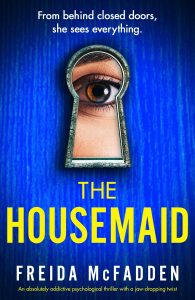

2. Yellowface — R. F. Kuang (2023)
Synopsis: Struggling writer June steals a deceased friend’s manuscript, rebrands herself, and fights to control the story as social media scrutiny closes in.
Why psychological: A first-person descent into self-justification, guilt, identity performance, and paranoia about authorship and public image.
3. Gone Girl — Gillian Flynn (2012)
Synopsis: On their fifth anniversary, Amy vanishes; husband Nick looks increasingly suspect while alternating diaries and POVs pull the floor from under the reader.
Why psychological: Canonical use of unreliable narration to probe marriage, manipulation, and persona.

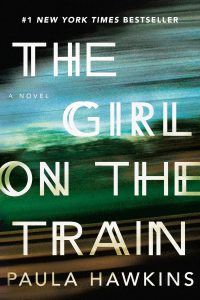
4. The Girl on the Train — Paula Hawkins (2015)
Synopsis: Rachel’s boozy commutes fixate on a “perfect” couple—until a missing-person case forces her to question her own fragmented memories.
Why psychological: Blackouts, memory gaps, and self-deception make interior uncertainty the engine of the plot.
5. The Silent Patient — Alex Michaelides (2019)
Synopsis: After Alicia shoots her husband, she stops speaking; a therapist becomes obsessed with unlocking her motive.
Why psychological: Clinical setting, muteness, and transference fix the story on motive, trauma, and the therapist’s own biases.
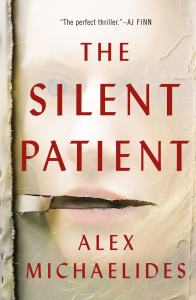

6. The Woman in the Window — A. J. Finn (2018)
Synopsis: Agoraphobic Anna believes she witnesses a crime from her window, but her medications, isolation, and past trauma muddy what’s real.
Why psychological: A cloistered POV and instability of perception foreground mind over action.
7. Before I Go to Sleep — S. J. Watson (2011)
Synopsis: Christine wakes each day with no memory; a diary and a doctor’s notes become her only anchors as contradictions pile up.
Why psychological: Identity reconstruction and amnesia make memory itself the mystery.
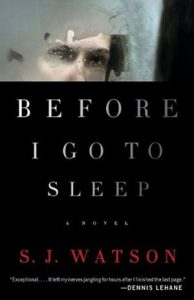

8. Shutter Island — Dennis Lehane (2003)
Synopsis: A U.S. Marshal investigates a disappearance at an asylum on an isolated island; reality frays as the case deepens.
Why psychological: Gothic setting plus unreliable perception and institutional psychiatry keep the focus on delusion and truth.
9. We Need to Talk About Kevin — Lionel Shriver (2003)
Synopsis: A mother’s letters recount life with her son who committed a school massacre, interrogating parenting, nature, and responsibility.
Why psychological: Epistolary introspection examines guilt, denial, and moral ambiguity rather than the crime’s mechanics.
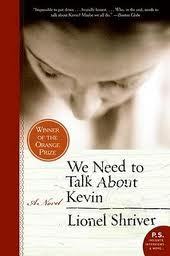

10. Room — Emma Donoghue (2010)
Synopsis: A mother and five-year-old son imprisoned in a single room narrate survival and the disorienting aftermath of escape.
Why psychological: Child POV refracts trauma, attachment, and adaptation with intimate interiority.
BONUS BOOK
 Son of the Axe — D. P. Martinez
Son of the Axe — D. P. Martinez
Synopsis: Jacob Machado seems to have it all, until he inherits a cursed 12th-century axe once owned by an ancestor. As visions blur with memory and history, he must choose: destroy the axe—and lose connection to his roots—or fulfil an ancient vow and risk losing himself.
Why it’s psychological: The tension comes from Jacob’s internal conflict, his identity shaped by legacy, and his unstable perception of past vs present—mindset drives the story more than external events.

11. Never Let Me Go — Kazuo Ishiguro (2005)
Synopsis: Kathy reflects on her schooldays and an unsettling adult destiny shared with two friends in a near-present England.
Why psychological: Memory, denial, and quiet fatalism drive the narrative; speculative frame serves a character-focused meditation.
12. Eileen — Ottessa Moshfegh (2015)
Synopsis: A withdrawn young woman caring for her alcoholic father and working at a boys’ prison becomes entangled in a disturbing friendship.
Why psychological: First-person fixation, repression, and self-loathing shape every choice more than external action.
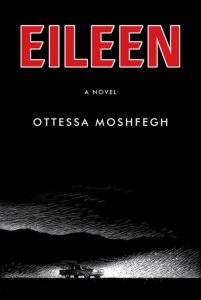

13. My Year of Rest and Relaxation — Ottessa Moshfegh (2018)
Synopsis: An unnamed narrator medicates herself into year-long hibernation hoping to reboot her life amid late-capitalist ennui.
Why psychological: Radical interiority, dissociation, and self-experiment as plot.
14. The Vegetarian — Han Kang (2007; Eng. 2015)
Synopsis: After violent dreams, Yeong-hye refuses meat, a decision that unravels her marriage and identity across three linked perspectives.
Why psychological: Obsession, bodily autonomy, and dissociation examined through shifting, intimate viewpoints.
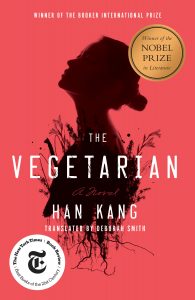

15. A Little Life — Hanya Yanagihara (2015)
Synopsis: Four friends’ lives orbit Jude, whose hidden past shapes decades of relationships and self-destruction.
Why psychological: Trauma, shame, and caregiving explored through prolonged interior focus and memory.
16. The Push — Ashley Audrain (2021)
Synopsis: A new mother fears something is wrong with her daughter as family history and expectation collide.
Why psychological: Maternal dread and intergenerational scripts drive the suspense more than external threat.
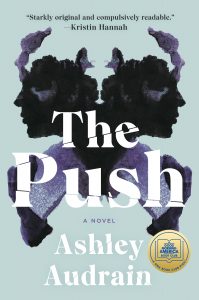

17. Bunny — Mona Awad (2019)
Synopsis: An outsider MFA student is absorbed by a saccharine clique whose workshops tip into surreal, sinister creation rituals.
Why psychological: Satiric, hallucinatory interiority blurs reality and imagination to probe loneliness, identity, and belonging.
18. You — Caroline Kepnes (2014)
Synopsis: Bookstore manager Joe narrates his obsessive pursuit of a woman, weaponizing social media and charm to control the story—and her.
Why psychological: First-person stalker POV turns manipulation, rationalization, and projection into the narrative engine.

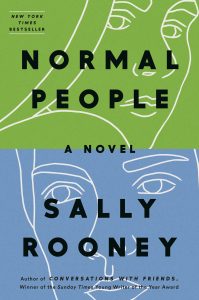
19. Normal People — Sally Rooney (2018)
Synopsis: Marianne and Connell drift in and out of each other’s lives from school to university, negotiating class, intimacy, and self-worth.
Why psychological: Close third-person focus on attachment styles and interior conflict; the relationship is the plot.
20. The Lovely Bones — Alice Sebold (2002)
Synopsis: After her murder, Susie narrates from a personal heaven as her family and killer continue on earth.
Why psychological: Grief, coping, and perspective define the story; the afterlife framework amplifies interior processing of loss.

As you finish reading one of these psychological novels, what stays with you often isn’t a neatly tied plot or a dramatic twist, but the echo of what it feels like inside a mind grappling with doubt, shame, or confusion.
These books do more than entertain. They challenge what you believe about what’s true about others and about yourself.
If you let them, they leave a mark: they make you question, reflect, and return to those spaces, unsettled but more alive for it.

D.P. Martinez is a contemporary fantasy author specialising in urban fantasy and magical realism. He holds an M.A. in English Literature from the University of Greenwich, where he focused on Literary London. His research explored metaphorical representations of London in urban fantasy. He has written hundreds of articles and several books across both fiction and non-fiction.

